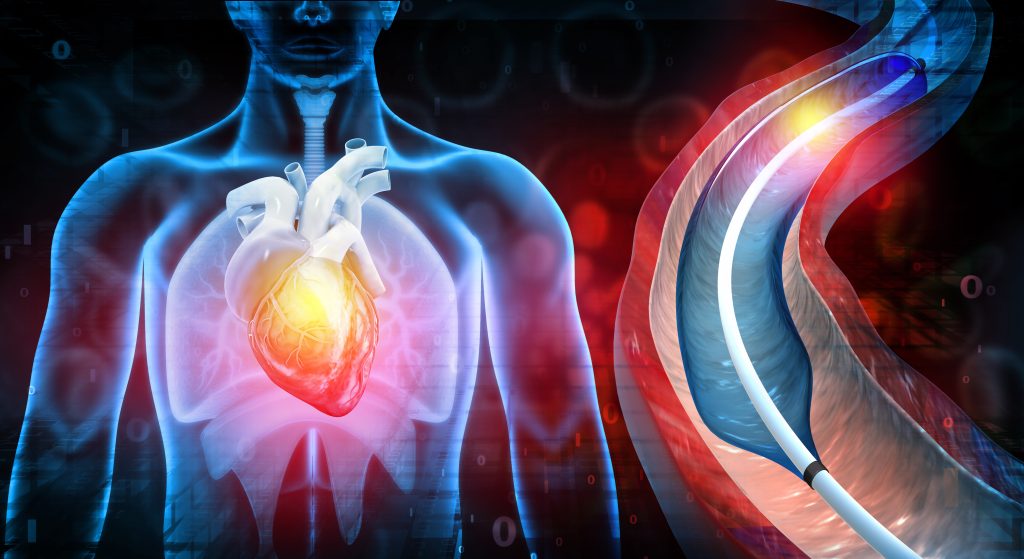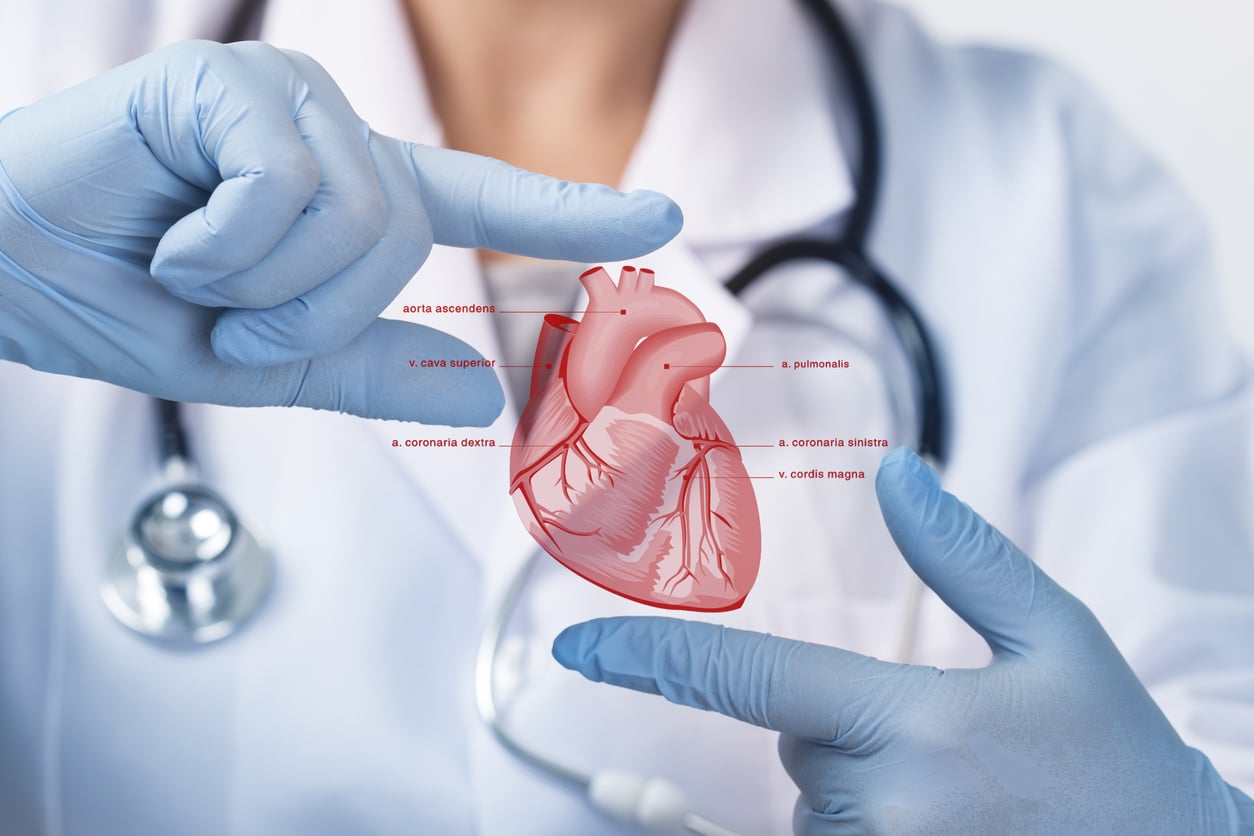Locating a Cardiologist near me that offers holistic heart solutions
Locating a Cardiologist near me that offers holistic heart solutions
Blog Article
Understanding the Importance of Cardiology in Modern Healthcare Services
Cardiology plays a vital function in modern-day medical care, particularly as cardiovascular disease continues to be the leading reason for death worldwide. Breakthroughs in diagnostics and therapy have actually changed person treatment, making it possible for earlier treatments and boosted end results. The shift towards preventive cardiology encourages people to handle their health and wellness proactively. As innovation continues to develop, the combination of innovative solutions might better redefine cardiology's effect on public health and wellness, triggering a closer examination of arising patterns and their implications.
The Prevalence of Cardiovascular Disease and Its Effect On Public Health
Although cardiovascular disease remains the leading reason of fatality worldwide, its impact expands far past private patients to influence public health and wellness systems and economies. The high occurrence of cardiovascular disease places a significant stress on medical care resources, demanding boosted funding for avoidance, rehabilitation, and treatment programs. Public health efforts should deal with threat factors such as weight problems, smoking, and inactive way of livings, which add substantially to the rising incidence of heart conditions.Moreover, the financial burden connected with heart condition is immense, encompassing not only straight clinical prices but likewise indirect costs associated with lost performance and premature mortality. Neighborhoods deal with obstacles in taking care of these costs, typically resulting in differences in medical care access and outcomes. As the population ages and lifestyle-related dangers continue to intensify, the urgency for efficient cardiology interventions ends up being vital. Subsequently, resolving heart disease is not only a matter of private health and wellness however likewise an essential public wellness top priority.
Breakthroughs in Heart Diagnostics and Imaging Techniques
Current developments in cardiac diagnostics and imaging techniques have actually changed the field of cardiology, enhancing the ability to check and identify heart conditions. Methods such as heart MRI, CT angiography, and echocardiography have actually ended up being increasingly sophisticated, giving in-depth photos of cardiac frameworks and functions. These methods permit the early recognition of conditions like coronary artery disease, cardiac arrest, and valvular disorders.Moreover, improvements in non-invasive diagnostics, such as wearable modern technology and remote tracking devices, have actually equipped patients and medical care suppliers. These tools promote real-time monitoring of heart rhythms and various other important indicators, causing timely interventions. Additionally, synthetic intelligence is being integrated right into imaging analysis, boosting precision and performance in diagnosis.
Innovations in Treatment Alternatives for Heart Conditions
Current developments in cardiology have actually caused significant advancements in therapy choices for heart disease. These include sophisticated medical strategies that improve step-by-step outcomes and emerging drugs that offer new methods for therapy. As the field progresses, these innovations play a crucial duty in improving individual treatment and end results.
Advanced Surgical Techniques
Developments in surgical techniques have changed the landscape of cardiology, providing new expect patients with heart conditions. Minimally intrusive treatments, such as catheter-based treatments, have actually significantly lowered recovery times and healthcare facility keeps. Strategies like robotic-assisted surgery enhance precision, enabling doctors to navigate complex anatomical structures with greater accuracy. Innovations in imaging technology facilitate real-time visualization throughout treatments, boosting end results. Transcatheter aortic shutoff substitute (TAVR) exemplifies an advancement in treating aortic stenosis, making it possible for valve substitute without open-heart surgery. Additionally, hybrid approaches that incorporate catheter-based and medical approaches provide customized remedies for numerous cardiac issues. These advanced medical strategies not just boost individual security but also increase treatment options, underscoring the crucial role of technology in contemporary cardiology methods.
Emerging Drugs and Therapies
As the landscape of cardiology remains to evolve, arising treatments and medications play a crucial function in enhancing therapy choices for heart disease. Technologies such as novel anticoagulants and progressed lipid-lowering agents have changed the administration of heart diseases, significantly reducing individual morbidity and mortality. Furthermore, the advancement of gene therapies and regenerative medication provides encouraging opportunities for dealing with conditions previously regarded irreversible. Professional trials are consistently revealing the efficiency of these therapies, pushing the boundaries of typical treatments. The integration of digital wellness technologies helps with tailored medication, allowing for tailored treatment strategies based on hereditary and way of living factors. Collectively, these developments emphasize the vibrant nature of cardiology, improving individual end results and redefining criteria of treatment in modern healthcare.
The Role of Preventive Cardiology in Client Care
Precautionary cardiology plays a crucial role in patient care by concentrating on the identification of risk elements that add to heart problem. Through lifestyle modification techniques and early detection techniques, doctor can successfully minimize the incidence of cardiovascular events - Cardiology care. This positive method not just boosts person end results however likewise promotes long-term wellness
Threat Element Identification
While heart diseases continue to be a leading root cause of morbidity and mortality worldwide, effective threat factor identification acts as a foundation of precautionary cardiology. Recognizing danger variables such as high blood pressure, hyperlipidemia, family members, and diabetic issues background is important for very early treatment. Medical care experts utilize numerous screening approaches to examine these factors, permitting for tailored preventative steps. Additionally, comprehending a patient's way of living choices, such as smoking cigarettes and physical inactivity, further educates threat analyses. This thorough analysis allows medical professionals to develop personalized treatment plans aimed at mitigating threats. By prioritizing danger variable identification, health care systems can boost client results and reduce the overall problem of cardio diseases, eventually adding to boosted public health methods and source allocation.
Way Of Life Alteration Approaches
A wide range of research studies highlights the essential function of way of living modification techniques in minimizing heart disease risk. These strategies include dietary modifications, boosted exercise, smoking cessation, and weight management. By adopting a heart-healthy diet rich in fruits, vegetables, whole grains, and lean proteins, individuals can lower cholesterol levels and high blood pressure. Regular exercise strengthens the heart and improves overall cardiovascular health. Additionally, quitting smoking greatly reduces the risk of heart disease and boosts recuperation prices for those with status quo. Weight administration even more contributes to cardiovascular wellness by minimizing various other danger elements such as diabetes and hypertension. Implementing these way of living alters not only promotes specific health however also acts as a keystone of precautionary cardiology in individual treatment.
Early Detection Strategies
Way of life modifications greatly add to decreasing heart disease dangers, but they are most reliable when combined with early discovery methods. Preventive cardiology stresses the importance of recognizing prospective heart issues prior to they escalate right into major problems. Methods such as high blood pressure tracking, cholesterol screening, and progressed imaging technologies like echocardiograms play vital roles in reviewing cardiovascular wellness. Biomarkers and genetic screening also improve the precision of early discovery, permitting customized preventive methods. Regular cardiac threat evaluations equip doctor to intervene proactively, potentially protecting against heart assaults and strokes (Dr Garcia). By integrating these very early discovery methods into regular treatment, patients can benefit from prompt way of living interventions and targeted treatments, inevitably improving and boosting outcomes quality of life
Integrating Innovation Into Cardiology Practices
As innovations in technology continue to reshape various fields, the assimilation of innovative devices and systems right into cardiology practices has come to be vital for boosting individual care and outcomes. Telemedicine platforms permit cardiologists to monitor individuals remotely, boosting accessibility to care while lowering the burden on health care centers. Wearable devices, such as smartwatches, make it possible for constant heart rate monitoring, signaling both medical professionals and patients to possible issues in real-time. Additionally, synthetic intelligence (AI) is being used to examine substantial quantities of heart data, assisting in very early medical diagnosis and personalized treatment strategies. Advanced imaging techniques, consisting of 3D echocardiography, improve visualization of heart structures, causing extra specific interventions. Electronic health and wellness records (EHRs) browse this site simplify individual details management, making certain that cardiologists have instant accessibility to vital data. Together, these technological advancements are transforming cardiology, promoting proactive administration and enhanced health outcomes for clients with cardiovascular conditions.
The Significance of Person Education And Learning and Involvement
Client education and interaction play an essential duty in the management of cardiovascular health and wellness. By gearing up people with expertise concerning their conditions, therapy choices, and way of living modifications, doctor empower individuals to take an active role in their care. This proactive technique can lead to enhanced adherence to recommended medications, nutritional adjustments, and workout programs, inevitably minimizing the threat of complications.Engagement also promotes a strong patient-provider connection, encouraging open communication and count on. When clients these details really feel informed and included, they are more probable to voice worries and ask concerns, which can bring about far better clinical results. In addition, instructional sources, such as workshops or digital systems, can boost understanding and promote self-management techniques. Overall, focusing on patient education and involvement is important for improving cardio wellness, enhancing top quality of life, and decreasing health care costs connected with cardio illness.
Future Patterns in Cardiology and Their Prospective Effect

Frequently Asked Questions
What Lifestyle Changes Can Lower Heart Problem Danger?
The current question addresses lifestyle changes that can substantially lower cardiovascular disease threat. Cardiology care. Adopting a well balanced diet plan, taking part in routine exercise, preserving a healthy weight, managing stress, and avoiding cigarette can significantly enhance cardio health and wellness
Exactly How Can I Acknowledge Very Early Signs of Heart Issues?
Acknowledging early indications of heart issues involves monitoring signs and symptoms such as breast pain, lack of breath, fatigue, and irregular heart beat. Prompt recognition of these indications can prompt needed medical examination and intervention for far better outcomes.
What Are the Distinctions Between Cardiologists and Cardiac Surgeons?
The differences between cardiologists and cardiac surgeons lie in their duties; cardiologists largely identify and take care of heart conditions through non-invasive techniques, while heart doctors perform procedures to fix structural heart problems. Each plays a crucial, distinct duty.

Exactly how Often Should I Get My Heart Health And Wellness Checked?
The frequency of heart checkup varies based on private risk factors. Normally, adults ought to go through examinations every one to 2 years, while those with present conditions might need even more regular evaluations as suggested by medical care professionals.
What Role Does Genetics Play in Heart Disease Danger?
Genetics considerably affects heart problem danger, with domestic patterns showing inherited conditions. Specific genetics can incline individuals to high blood pressure, cholesterol issues, see and other cardio issues, highlighting the relevance of hereditary testing in reviewing heart wellness. Heart condition stays the leading reason of fatality worldwide, its influence prolongs much beyond individual patients to influence public health and wellness systems and economic situations. Public health efforts should resolve danger elements such as excessive weight, smoking, and less active way of livings, which contribute greatly to the climbing incidence of heart conditions.Moreover, the financial concern associated with heart illness is tremendous, encompassing not only direct clinical prices however additionally indirect expenditures connected to lost productivity and premature mortality. Precautionary cardiology plays a crucial duty in individual treatment by concentrating on the recognition of danger aspects that contribute to heart illness. Synthetic knowledge (AI) and device discovering are improving diagnostics and client surveillance, making it possible for very early discovery of heart conditions. The differences between cardiologists and heart specialists exist in their duties; cardiologists largely take care of and diagnose heart conditions with non-invasive approaches, while heart cosmetic surgeons perform medical procedures to fix structural heart concerns.
Report this page